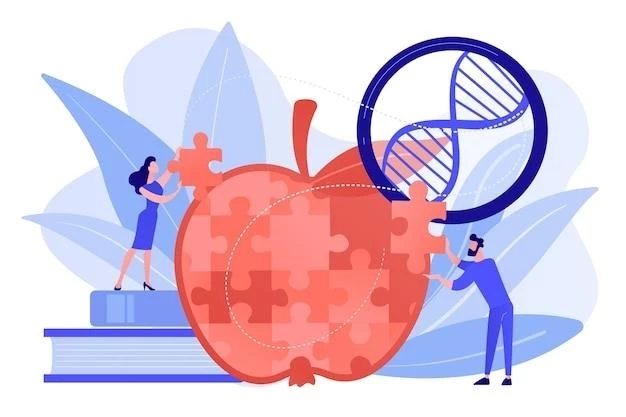Physical Symptoms
Developmental Delays
Intellectual Disabilities
Facial Dysmorphism
Physical Symptoms
Physical symptoms of Monosomy 8p23 may include craniofacial abnormalities, such as a prominent forehead and widely spaced eyes. Additionally, individuals may exhibit structural anomalies like heart defects, kidney malformations, and skeletal issues. It is essential to recognize these signs for early intervention.
Developmental Delays
Developmental delays are common in individuals with Monosomy 8p23, affecting milestones such as motor skills, speech, and cognitive abilities. Early identification and intervention through therapies focused on stimulating development are crucial to help these individuals reach their full potential.
Intellectual Disabilities
Intellectual disabilities are often present in individuals with Monosomy 8p23, impacting cognitive functions such as learning, reasoning, and problem-solving abilities. Specialized educational programs and cognitive therapies can help individuals with intellectual disabilities maximize their cognitive potential and independence.
Facial Dysmorphism
Facial dysmorphism, characterized by distinct facial features like a high forehead, hypertelorism (widely spaced eyes), and a flat nasal bridge, is a common trait in individuals with Monosomy 8p23. These unique facial characteristics may aid in diagnosing the condition and guiding appropriate medical management strategies.
Early Intervention Programs
Behavioral Therapies
Medical Management
Supportive Care
Early Intervention Programs
Early intervention programs play a pivotal role in addressing the developmental needs of individuals with Chromosome 8 disorders like Monosomy 8p23. These programs focus on providing comprehensive support, therapies, and educational interventions tailored to the specific challenges faced by affected individuals.
Behavioral Therapies
Behavioral therapies are essential in addressing behavioral challenges often present in individuals with Chromosome 8 disorders like Monosomy 8p23. These therapies focus on modifying behaviors٫ improving social skills٫ and enhancing communication abilities to promote adaptive functioning and overall quality of life.
Medical Management
Medical management for Chromosome 8 disorders٫ such as Monosomy 8p23٫ involves a multidisciplinary approach including regular check-ups٫ monitoring for associated health conditions٫ medication management for specific symptoms٫ and coordination with specialists to address individualized medical needs effectively.
Supportive Care
Supportive care for individuals with Chromosome 8 disorders like Monosomy 8p23 involves providing emotional support٫ resources for families٫ and access to community services. Holistic care٫ encompassing psychological support and assistance with daily living activities٫ can enhance the well-being and overall quality of life for affected individuals.
Genetic Mutations
Inheritance Patterns
Environmental Factors
Genetic Mutations
Genetic mutations play a critical role in the development of Monosomy 8p23. The deletion of genetic material on the short arm of chromosome 8 leads to the manifestation of symptoms associated with this condition. Understanding these mutations is essential for accurate diagnosis and tailored treatment approaches.
Inheritance Patterns
The inheritance pattern of Monosomy 8p23 is typically sporadic and not inherited from parents. It often arises as a random event during the formation of reproductive cells or early embryonic development. Understanding the sporadic nature of this condition is crucial in genetic counseling and family planning.

Environmental Factors
Environmental factors do not play a significant role in the development of Monosomy 8p23. This chromosomal abnormality is primarily attributed to genetic mutations that occur spontaneously rather than being influenced by external environmental factors. Understanding the genetic basis of the condition is paramount in its diagnosis and management.
Genetic Testing
Imaging Studies
Clinical Evaluation
Genetic Testing
Genetic testing is crucial in diagnosing Chromosome 8 abnormalities like Monosomy 8p23. Techniques such as chromosomal microarray analysis and fluorescence in situ hybridization (FISH) can identify the specific genetic variations associated with this condition, aiding in confirming the diagnosis and guiding appropriate medical management.
Imaging Studies
Imaging studies, such as MRI and CT scans, play a vital role in assessing structural abnormalities associated with Chromosome 8 disorders like Monosomy 8p23. These non-invasive techniques provide detailed images of the brain٫ heart٫ and other organs٫ aiding in the diagnosis and evaluation of potential medical complications.
Clinical Evaluation
Clinical evaluation involves a thorough assessment of physical and cognitive symptoms related to Chromosome 8 abnormalities like Monosomy 8p23. Medical professionals conduct comprehensive examinations, review medical history, and perform neurological assessments to formulate an accurate diagnosis and develop personalized treatment plans tailored to the individual’s specific needs.
Multidisciplinary Approach
Individualized Treatment Plans
Symptom-Based Interventions
Multidisciplinary Approach
A multidisciplinary approach involving specialists from various fields such as genetics, pediatrics, rehabilitation, and psychology is essential for comprehensive management of Monosomy 8p23. Collaborative efforts ensure holistic care addressing the diverse needs of individuals with this chromosomal aberration٫ optimizing outcomes and quality of life.
Individualized Treatment Plans
Developing individualized treatment plans tailored to the specific needs and challenges of individuals with Monosomy 8p23 is paramount. These plans may encompass therapies, educational interventions, and medical management strategies personalized to optimize outcomes and address the unique symptoms associated with this chromosomal disorder.
Symptom-Based Interventions
Symptom-based interventions aim to target specific manifestations of Monosomy 8p23, addressing issues such as developmental delays, intellectual disabilities, and physical anomalies. Therapeutic approaches and supportive interventions are tailored to manage individual symptoms effectively, enhancing the overall well-being and quality of life of those affected by this chromosomal abnormality.
Genetic Studies
Therapeutic Advancements
Clinical Trials
Genetic Studies
Genetic studies on Chromosome 8 deletions, including Monosomy 8p23, aim to elucidate the underlying molecular mechanisms and identify potential therapeutic targets. By exploring the genetic basis of this condition, researchers strive to enhance diagnostic accuracy, develop targeted treatments, and improve outcomes for affected individuals through cutting-edge genetic research.
Therapeutic Advancements
Therapeutic advancements in the realm of Chromosome 8 disorders, like Monosomy 8p23, involve novel treatment modalities, precision medicine approaches, and targeted interventions. Ongoing research efforts focus on developing innovative therapies to address the specific challenges and symptoms associated with these genetic conditions, aiming to improve patient outcomes and quality of life.
Clinical Trials
Clinical trials play a pivotal role in advancing the understanding and treatment of Chromosome 8 disorders like Monosomy 8p23. These studies evaluate new therapies٫ interventions٫ and diagnostic tools to enhance patient care and outcomes. Participation in clinical trials contributes valuable data to the scientific community٫ driving progress in managing genetic conditions.
Long-Term Outlook
Complications and Risks
Quality of Life
Long-Term Outlook
The long-term outlook for individuals with Monosomy 8p23 varies depending on the severity of symptoms and associated complications. Regular monitoring, early interventions, and coordinated care can positively impact the prognosis, helping individuals achieve the best possible developmental and functional outcomes over time;
Complications and Risks
Individuals with Monosomy 8p23 may be susceptible to a range of complications such as cardiac abnormalities, developmental challenges, and intellectual disabilities. Regular medical assessments, early interventions, and holistic care strategies are essential in managing these risks and minimizing potential health-related issues associated with this genetic condition.
